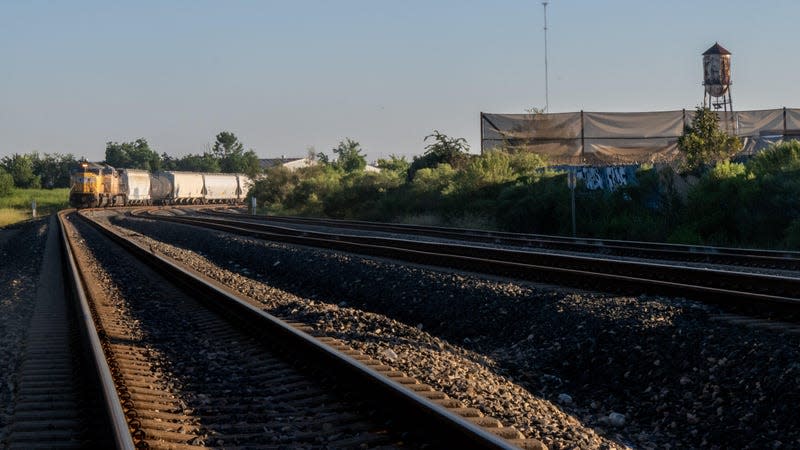Large Railroad Union Inches Closer to a National Strike After Rejecting Latest Contract

One of the largest freight railroad worker unions rejected the tentative agreement hammered out last month after marathon negotiations brokered by the Biden Administration on Monday.
Fifty-one percent of members of the SMART Transportation Division union voted down the contract, which was key to averting a nationwide freight train strike in September. Meanwhile, the other large union hold out, the Brotherhood of Locomotive Engineers and Trainmen, narrowly voted at 53.5 percent to ratify the new contract.
Read more
If even one union does not ratify the contract, all could potentially go on strike following a “cooling off” period after voting, with work stopping by December 5, CNBC reports. A smaller union, the Brotherhood of Maintenance of Way Employees, is already scheduled to go on strike December 5, though may extend its cooling off period in order to sync up a strike with a larger union.
“We stood shoulder to shoulder with our brothers and sisters in SMART-TD and others in rail labor throughout this process and we will continue to stand in solidarity with them as we approach the finish line in this round of negotiations,” said BLET President Dennis Pierce.
The main sticking point is nominally days off to attend to medical issues and other life events, but the paltry three days off a year belies a bigger issue in the industry, according to the New York Times:
The Surface Transportation Board, a federal agency that regulates freight rail, has estimated that large freight carriers employed roughly 30 percent fewer workers this year than they did six years ago.
Before the conductors union voted down the agreement, three smaller unions that would be covered by the agreement voted against it. That in itself could have led to an industrywide strike because rail workers are unlikely to cross the picket lines of other unions.
Skeptical conductors and engineers have pointed out that the tentative agreement could have worsened staffing problems and made their schedules even less predictable by allowing the carriers to apply a staffing change they have long sought.
Under the current system, conductors and engineers fall to the bottom of a list of available crews when they complete a trip, then gradually work their way up to the top, at which point they are sent out again.
If a co-worker calls in sick, a worker from a group known as an extra board can be substituted so that the other conductors and engineers do not move up the list more quickly and can maintain some predictability in their schedule.
Workers say cuts to the extra board in recent years have eroded this predictability. The tentative agreement made it possible for the carriers to establish so-called self-supporting pools that eliminate the use of substitute workers, though it appeared to give the unions some formal say over whether to do so.
Such a strike would cost the American economy an estimated $2 billion a day. If a strike does occur, congress would likely need to intervene using a 1992 amendment to the Railway Labor Act to force workers back on the lines. Congress could also extend the cooling off period between an unsuccessful ratification and a strike. Railroad workers have been working without a contract since 2019, and anger is mounting over the federal government interfering with workers’ attempts to reach a fair contract with their employers.
Working a railroad job has always been a difficult, dangerous gig. While the economy and supply chain logistics would be in pain, so are workers who claim they are routinely forced to work multiple 12-hour shifts in a row and miss necessary medical appointments all in the name of cost savings at the expense of their bodies and personal lives.
“People feel completely sold out,” one union member told the Times. “Now that it’s after the election, there’s going to be no accountability.”
Talks are ongoing between the unions and railroads. Some companies, like UPS, are already working to reroute packages to avoid slow downs in the event of a strike. When a strike seemed eminent in September everything from the shipping of chemicals to passenger transportation in the western United States was affected.
More from Jalopnik
Sign up for Jalopnik's Newsletter. For the latest news, Facebook, Twitter and Instagram.

 Yahoo Autos
Yahoo Autos 